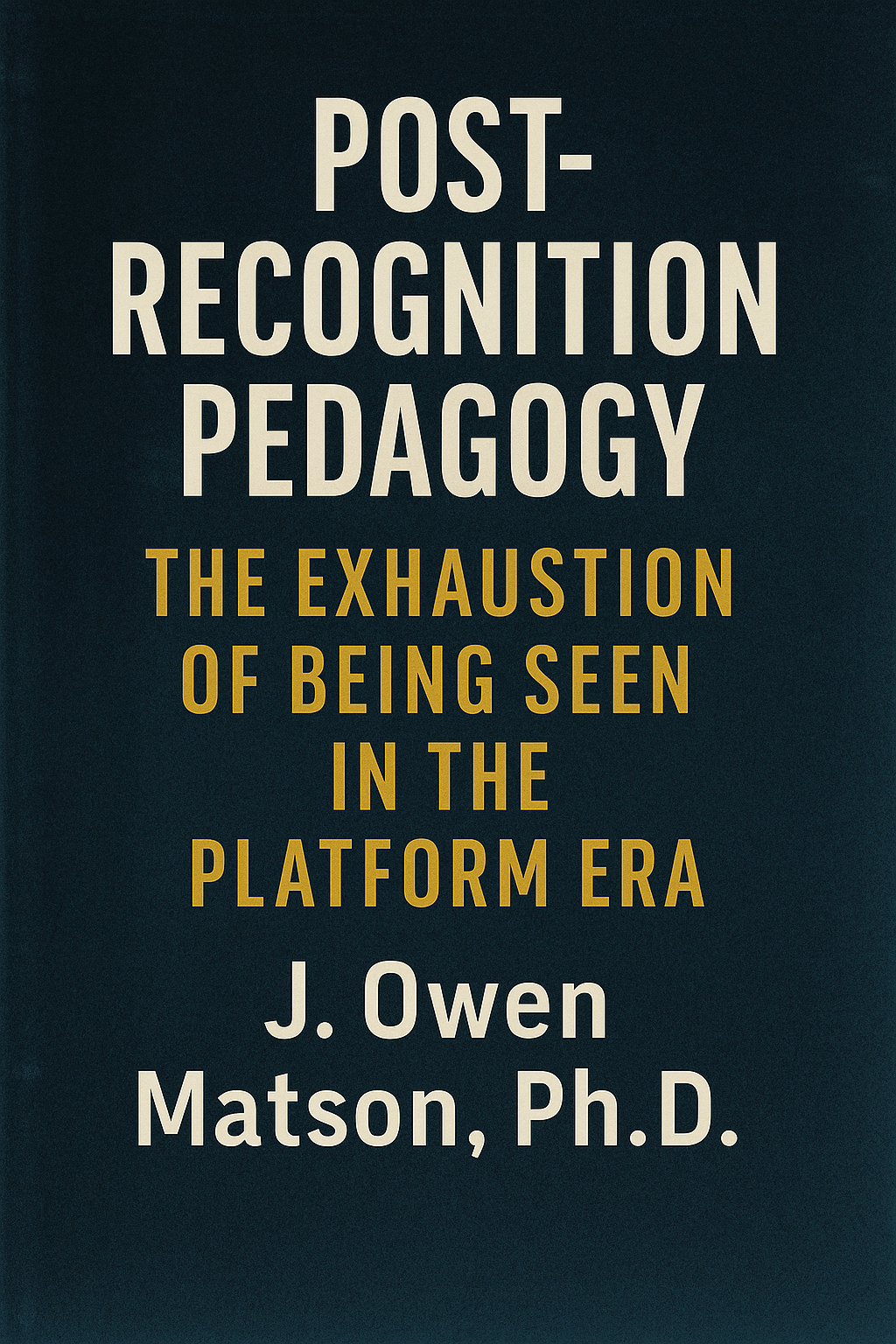Post-Recognition Pedagogy: The Exhaustion of Being Seen in the Platform Era

What if recognition in education isn’t the solution—but part of the problem?
Abstract
This article advances a post-recognition pedagogy by interrogating how recognition functions not as an ethical ideal but as a recursive apparatus of subject formation. Drawing on critical theory, affect studies, and platform critique, the paper argues that recognition in both schools and digital environments operates less as affirmation than as governance—binding identity to legibility, and subjectivity to performance. Through a distinction between recognition-for-behavior and recognition-of-identity, the article shows how educational systems compel recognition through institutional grammars, while platforms extract it as affective surplus. The concept of recognition attrition is introduced to name the affective and infrastructural depletion generated by these recursive demands.
Close readings of The Breakfast Club and Eighth Grade anchor two historical phases of recognitive governance—disciplinary and platformized—each illuminating the structural impossibility of being “seen” on one’s own terms. Rereading Paulo Freire through this lens, the article positions him not as a theorist of mutual affirmation, but as a critic of recognition’s structural capture. Post-recognition pedagogy, then, does not aim to improve recognitive practices but to render their mechanisms visible. It calls for a shift from affirming identity to interrogating the systems that produce, regulate, and exhaust its appearance.